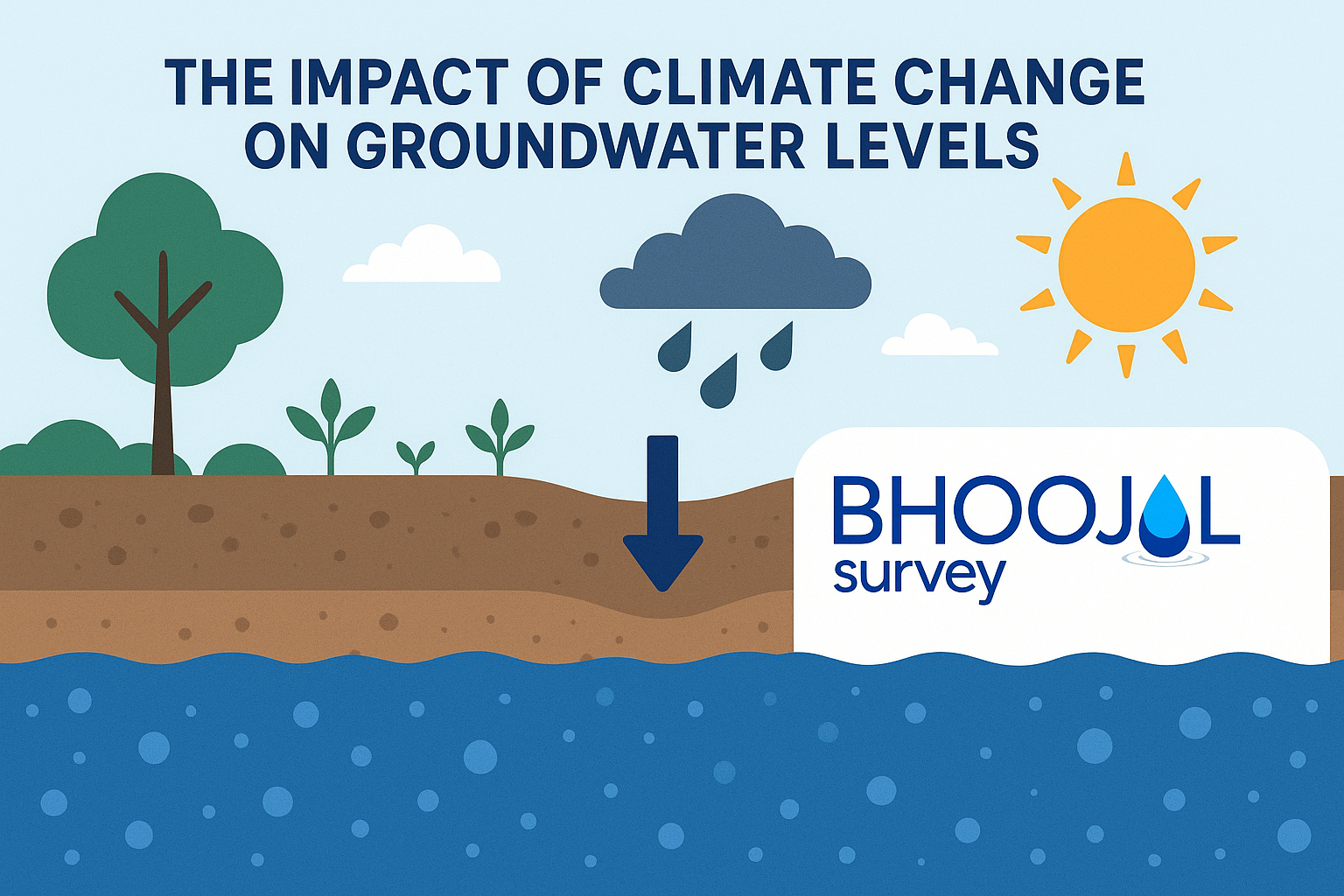Impact of Climate Change on Groundwater Levels
Impact of Climate Change on Groundwater Levels
Climate change is no longer a distant threat — it is a present reality affecting ecosystems worldwide, and one of the most significant areas of concern is the impact of climate change on groundwater. Groundwater, which accounts for about 30% of the world's fresh water, is an essential resource for agriculture, drinking water, and industries. However, groundwater and climate change are now closely linked, with the latter dramatically altering groundwater availability and quality.

How Climate Change Affects Groundwater?
1. Changing Precipitation Patterns:
One of the primary ways climate change impacts groundwater is through altered rainfall patterns. Some regions experience prolonged droughts, reducing groundwater recharge, while others face intense rainfall, leading to rapid runoff instead of infiltration.
2. Increased Evapotranspiration:
Rising global temperatures lead to higher rates of evapotranspiration — the process by which water is lost from soil and vegetation. This effect is particularly concerning for regions already prone to water scarcity.
3. Rising Sea Levels and Saltwater Intrusion:
Coastal aquifers are at risk due to rising sea levels, a direct consequence of climate change. As freshwater levels drop, saltwater can infiltrate groundwater sources, degrading water quality.
4. Glacial Melt and Reduced Snowpack:
For regions reliant on snowmelt and glacial water for recharge, climate change poses a severe threat. With glaciers shrinking and snowpacks decreasing, the seasonal recharge that sustains many aquifers is declining.
The Socioeconomic Impact
The effect of climate change on groundwater is not just an environmental issue — it has far-reaching socioeconomic consequences:
- Agricultural Disruption: Reduced water for irrigation threatens food security.
- Water Scarcity for Communities: Borewell-dependent areas face challenges.
- Industrial Impact: Water-dependent industries may face disruptions.
Mitigating the Impact
Understanding the climate change impact on groundwater is the first step toward effective mitigation. Here are some actionable strategies:
- Water Conservation: Promote efficient water use.
- Artificial Recharge: Implement rainwater harvesting.
- Sustainable Borewell Practices: Monitor and manage borewell extraction.
- Data-Driven Planning: Use groundwater surveys for informed decisions.
Need Expert Groundwater Survey Services?
At Bhoojal Survey, we provide the best groundwater survey services using advanced technologies to help you identify groundwater sources accurately. Our expert team ensures reliable and sustainable groundwater management solutions.
Contact Us:
- Website: www.bhoojalsurvey.com
- Email: bhoojalsurvey@gmail.com
- Phone: +91-9691858058
